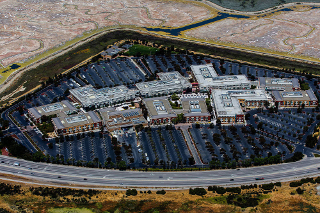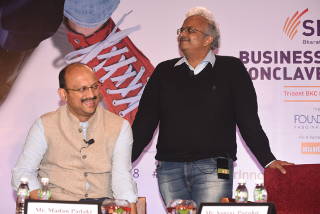[Image by Pexels from Pixabay]
Dear friend,
In the early 1930s, Clarence Hickman, a Bell Labs engineer, had developed a working model of an answering machine. If no one picked up a call, the machine allowed you to leave a message. What’s fascinating about Hickman’s device is it recorded your message on a magnetic tape. It’s a big deal. As Tim Wu explained it once, ultimately, the underlying technology is the same technology that begins to power the hard drive which ultimately becomes a server which ultimately anchors every single internet company there is, the entire computer industry and so forth. So this is an extremely significant invention that Bell has and no one else does.
Yet, Bell Labs shut down the entire research on magnetic storage. We wouldn’t even know about it today, but for a historian who found it in the Bell archives 60 years later. What’s even more interesting is the reason why Bell shut it down. It thought the machine will hurt its core business, because people might be afraid to talk over the phone knowing it could be recorded and used against them. So, they would use the phone less. It’s just one of the many examples of what happens when a platform—and the telephone system can be thought of as a platform—is heavily controlled by a business.
Years later, when Vint Cerf and Robert Kahn were working on interconnecting computers, they most likely didn’t know about the story of the answering machine in Bell Labs, but they knew the problems with telephone networks in general. Thus, the principles that guided TCP/IP were a) no central control, b) no optimisation for a specific application. These principles explain the amazing growth of the internet, and also the range of innovations that happened on top of it. (Interestingly, TCP/IP was the inspiration for Nandan Nilekani and his team when they were designing Aadhaar as a platform.) But, the internet has also had a whole range of negative consequences—aiding criminal enterprises, spreading fake news and so on.
Too much control is bad. But too little is not without problems. Commercial platforms that grew on the internet—from Facebook to Twitter, Airbnb to Oyo, Uber to Ola, Swiggy to Zomato—are struggling to find a balance. How much control is too much control? How do you balance the conflicting needs of two different sets of stakeholders? How is a platform to know when it has failed?
My colleague Charles Assisi surfaced an interview with Chamath Palihapitiya where he talks about an interaction with Bill Gates. “I was in charge of Facebook platform. We trumpeted it out like it was some hot shit big deal…. And Gates said something along the lines of, ‘That’s a crock of shit. This isn’t a platform. A platform is when the economic value of everybody that uses it, exceeds the value of the company that creates it. Then it’s a platform.’ ”
Strategic consultant Harsh Vardhan makes a similar observation in his latest piece exploring the crisis at Zomato. He writes, "In any partnership, if a key player tries to hog more value than he is creating in the game, the market will eventually punish him. And this seems to be the crux of Zomato's woes."
What are your thoughts? How will you balance the needs of different stakeholders on a platform when they are pulling in different directions? How will you apportion the value created out of the platform to various stakeholders?
Let us know what you think.
NS Ramnath
Featured Stories
Zomato Gold: A crisis that was waiting to happen

The Zomato Gold membership programme was a runaway success, but the inherent conflict at the heart of the scheme has sparked off a huge battle between the aggregator and restaurants. For Zomato, shifting the focus of diners from discounts to loyalty may be the best way forward. (By Harsh Vardhan. Read Time: 11 mins)
The man and the machine

A roundup of news and perspectives on disruptive technology from around the world. In this issue: AI-assisted app development, solar roads, biofuels, micro ATMs and brain-AI integration. (By N S Ramnath. Read Time: 4 mins)
What We Are Reading
We can be heroes: How the nerds are reinventing pop culture
This is a story about stories—and the way technology is changing the scope and structure of the stories we tell. (By Laurie Penny)
What’s your story?
Getting the story right is critical, as much for motivating ourselves as for enlisting the help of others. Anyone trying to make a change has to work out a story that connects the old and new selves. (By Herminia Ibarra and Kent Lineback)
The evolution of an innovation guru
With one of the sharpest minds in business, Clayton Christensen has dedicated his life to stimulating ideas. While he has had his own setbacks, he's still out in front with thinking that could yet change the world. (By Neelima Mahajan)
From Our Archives
The fault in our startups

[Image:Supernova remnants by NASA/CXC/U.Texas].
Internet startups are cloning business models from the West, without much thought on how to Make in India. (By Haresh Chawla)
Disquiet in paradise: Why the internet may be turning into Fort Knox

[Photograph of Facebook Campus by Austin McKinley under Creative Commons]
Three recent books lay bare claims that the internet is a democratizing and empowering force in society. Instead, new internet czars have concentrated power in their own hands, made us dumber—and spawned a more divisive society. (By Arun Maira)
Beyond Business: Using platform thinking to drive societal change

How do you drive a very large-scale societal transformation? In this video, EkStep Foundation’s Sanjay Purohit and 1Bridge founder Madan Padaki talk about how Societal Platforms, or open digital co-creation networks, can drive innovation in sectors like education.


Harsh Vardhan on Aug 30, 2019 11:40 a.m. said
Excellent piece Ramnath. You have brought out the crux of this whole episode of Zomato so beautifully. Very well written.